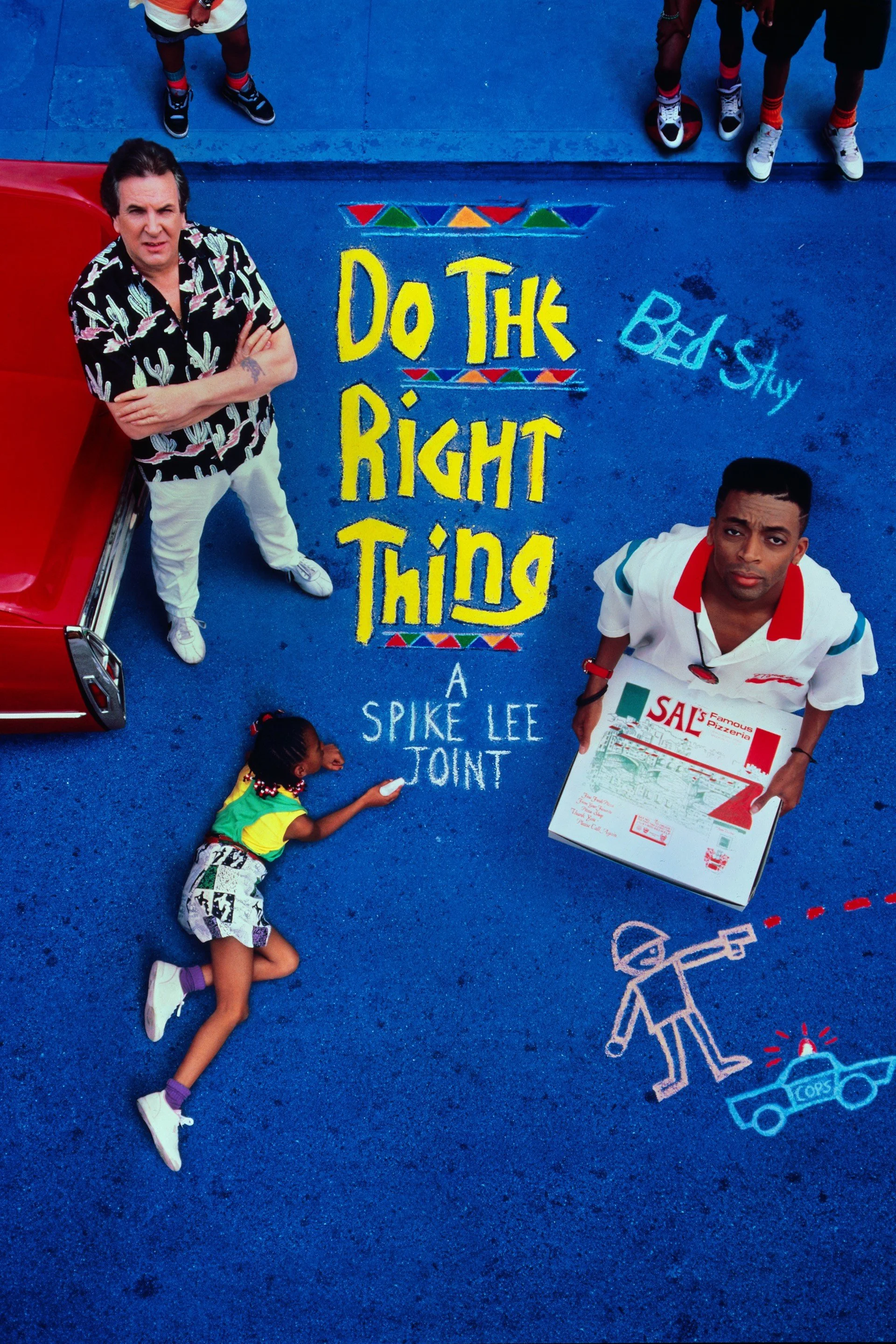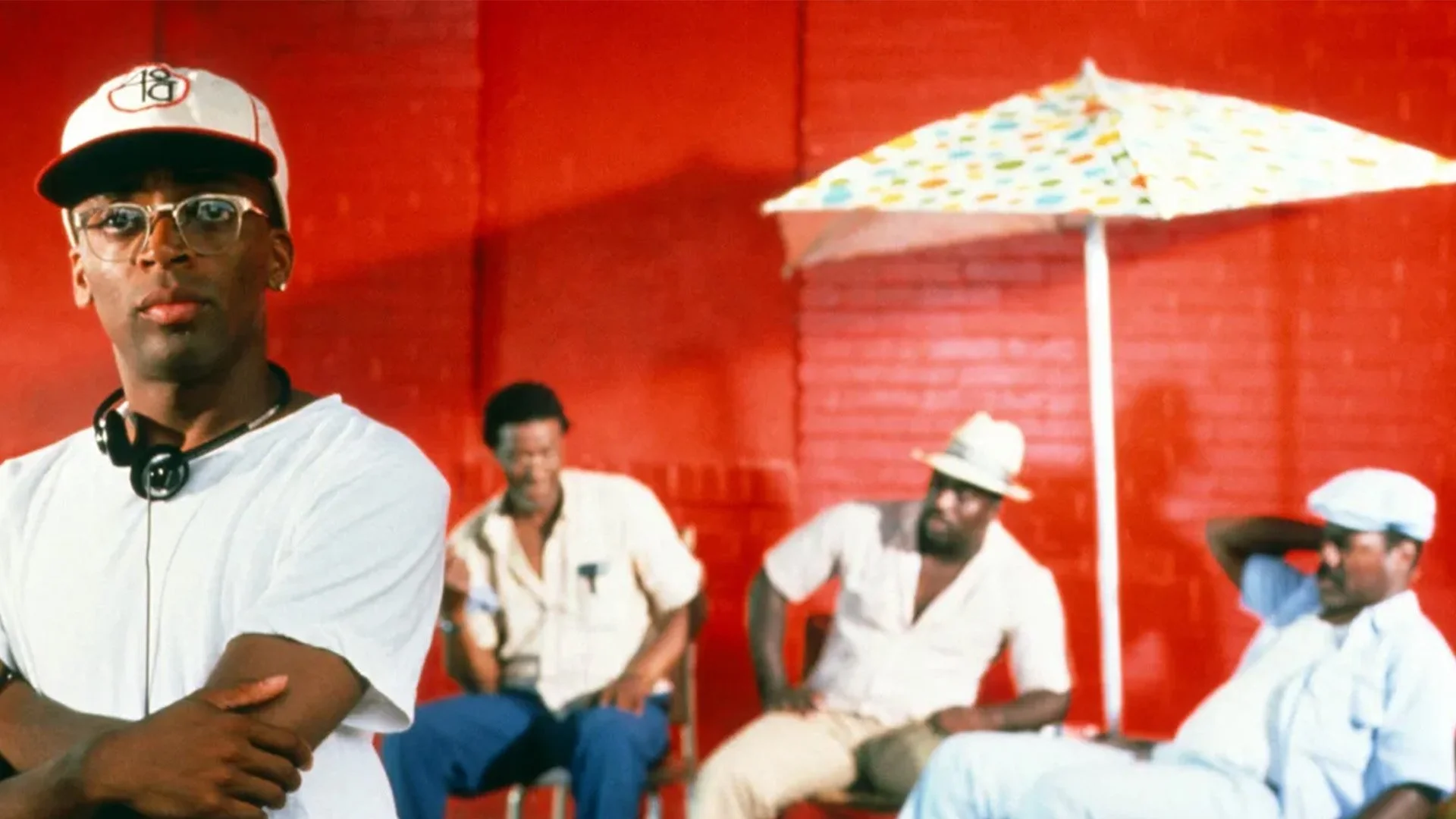Spike Lee’s Do the Right Thing (1989)
Universal Pictures; Spike Lee
To kick things off on the movie review tip, I decided to take it back to 1989. Do the Right Thing is one of my all-time favorite films, and the way Spike Lee captured the exploration of race, community, and conflict in this provocative piece shaped the way I viewed cinema, life, and even my own Blackness.
Directed by Spike Lee, Do the Right Thing stars Lee, Danny Aiello, Ossie Davis, Ruby Dee, John Turturro, Giancarlo Esposito, Martin Lawrence, Samuel L. Jackson, Rosie Perez, and Joie Lee — a cast that seamlessly captures the diversity, and chaos, of a sweltering summer day in NYC.
The story centers on Mookie (played by Lee himself), a young Black man working as a delivery guy for Sal's Famous Pizzeria, a long-standing Italian-American business in a predominantly Black neighborhood. What begins as a series of everyday encounters — neighbors bantering, tensions simmering — slowly escalates into a searing confrontation that ends in tragedy. Lee doesn't provide easy answers. He presents the complexity of racial tension without preaching, allowing viewers to wrestle with complex moral and ethical questions.
Do the Right Thing is not just a movie; it remains a flawless piece of art, a masterpiece not only in Black cinema but in the cinematic canon at large. Spike Lee's film is still an extraordinary conversation starter, a cultural landmark, and a gut punch of emotional and political truth.
The film demands viewers to analyze their own biases across themes of racial injustice, identity, systemic inequality, and that pesky thin line between peace and violence. Lee's conscious efforts to hold a mirror up to society compelled me to grapple with what it means to truly "do the right thing" in a society where people would rather argue to be right than find common ground.
Spike Lee's seminal film is as relevant today as it was in 1989, perhaps even more so — a testament to the story's timeless essence and a commentary on how much has NOT changed in America.
Also, Public Enemy's iconic track, "Fight the Power," used to heighten the movie's intensity? Absolute cinema, indeed.
Universal Pictures; Spike Lee



